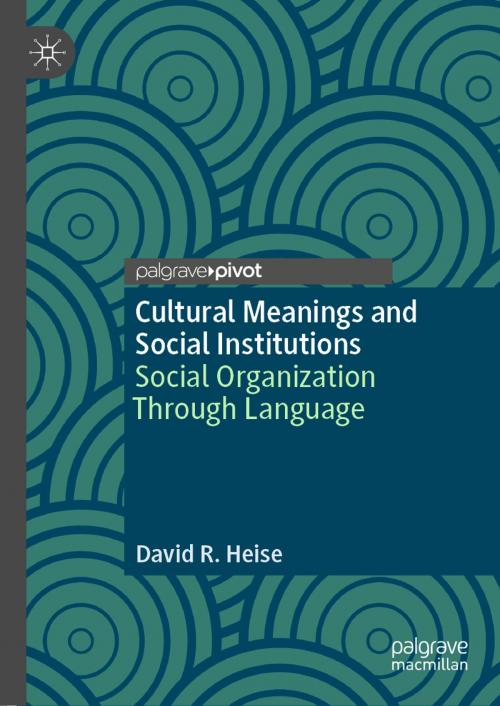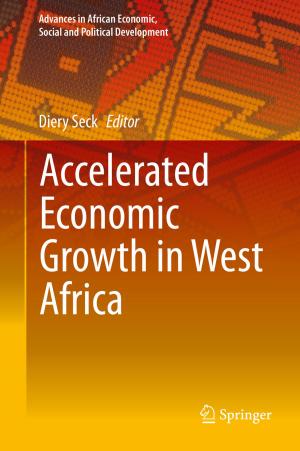Cultural Meanings and Social Institutions
Social Organization Through Language
Nonfiction, Social & Cultural Studies, Social Science, Methodology, Sociology| Author: | David R. Heise | ISBN: | 9783030037390 |
| Publisher: | Springer International Publishing | Publication: | December 14, 2018 |
| Imprint: | Palgrave Pivot | Language: | English |
| Author: | David R. Heise |
| ISBN: | 9783030037390 |
| Publisher: | Springer International Publishing |
| Publication: | December 14, 2018 |
| Imprint: | Palgrave Pivot |
| Language: | English |
Employing three methods of assessing meaning, this book demonstrates that the thousands of human identities in English coalesce into groups that are recognizable as role sets in the contemporary social institutions of economy, kinship, religion, polity, law, education, medicine, sport, and arts. After establishing a theoretical and a methodological framework for his empirical work, David Heise presents the results obtained when meanings are assessed via dictionary definitions, collocates, and word associations. A close comparison of the results reveals that similar outcomes are obtained through each of these three different approaches of defining meaning. The final chapter summarizes the study, considers the benefits and limitations of studying society via language, and applies the results to describing how individuals operate social institutions via their daily social interactions. Aspects of this book will be of interest to social psychologists, sociologists, and linguists.
Employing three methods of assessing meaning, this book demonstrates that the thousands of human identities in English coalesce into groups that are recognizable as role sets in the contemporary social institutions of economy, kinship, religion, polity, law, education, medicine, sport, and arts. After establishing a theoretical and a methodological framework for his empirical work, David Heise presents the results obtained when meanings are assessed via dictionary definitions, collocates, and word associations. A close comparison of the results reveals that similar outcomes are obtained through each of these three different approaches of defining meaning. The final chapter summarizes the study, considers the benefits and limitations of studying society via language, and applies the results to describing how individuals operate social institutions via their daily social interactions. Aspects of this book will be of interest to social psychologists, sociologists, and linguists.















